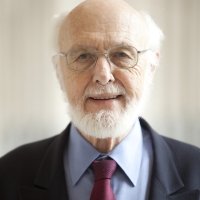The First Quadrennial Diplomacy and Development Review: Strengthening America's Role in the 21st Century
On December 16, 2010 the Wilson Center on the Hill hosted an event to discuss the implementation and recommendations of the first Quadrennial Diplomacy and Development Review (QDDR). The review, under the leadership of Secretary of State Hillary Clinton, strives to create new levels of transparency and accountability for the development programs of the U.S. government, while strengthening the core values of policy and development. The event was moderated by the Wilson Center’s Senior Scholar John Sewell.
In describing the process of how the QDDR developed, Anne-Marie Slaughter, Director, Office of Planning at the U.S. Department of State, pointed to Secretary of State Clinton’s time in the Senate Armed Service Committee where then-Senator Clinton worked on the Defense Department’s Quadrennial Defense Review. Secretary Clinton carried with her to State with the question of “How can we do better?” During her confirmation hearings, Clinton emphasized that one of her main goals would be to elevate development as a core pillar of American foreign policy, and Slaughter added that the QDDR provides a framework towards obtaining that goal.
Slaughter outlined three major priorities within the review that seek to create better cooperation and transparency. The first stresses the crucial role of civilian power and the need to create increased cooperation amongst and between federal agencies. The Executive Summary stresses “the need to elevate civilian power alongside military power as equal pillars of U.S. foreign policy,” noting the crucial role of diplomacy in solving international disputes. The second priority is elevating development programs such that “development is a strategic, economic, and moral imperative- as central to our foreign policy as diplomacy and defense.” The third priority within the QDDR is to better prevent and respond to crisis and conflicts.
According to Slaughter, the innovative review, which intends to enhance the foundation of how the State Department will function in the future, is not be mistaken as just another report to be distributed amongst employees, but instead as a blueprint to implementing change. Slaughter, as well as fellow panelist Donald Steinberg, Deputy Administrator at USAID, emphasized how many aspects of the review are already being implemented within departments.
Within USAID, Steinberg noted how the second priority is becoming a reality. While still under the auspices of the State Department, USAID is growing in its capacity as the lead agency in development initiatives. Furthermore, Steinberg pointed to how USAID is not only empowering its development capabilities but is now controlling its yearly budget. Steinberg said that by FY 2013, USAID will submit its own budget to Congress for approval--a process previously submitted alongside the State Department proposal. Addressing the greater role that USAID will be given, Steinberg said that the agency believes the review “represents a vote of confidence from the President and the Secretary of State in the capacity of our organization to lead on development and to run the most important presidential development initiatives.”
Both Slaughter and Steinberg briefly addressed smaller but nonetheless significant reforms within the agencies to enhance transparency, specifically targeting procurement reform and the role of contractors. Both panelists agreed that the review is a step in the right direction in implementing long lasting reform within the agencies while also providing a framework for the president’s development and diplomatic initiatives. Steinberg concluded by noting that the “QDDR is a powerful document, but it is really only as powerful as we can make it, and let me assure you we intend to make it powerful indeed.”
Drafted by: Michael Darden
Kent Hughes, Wilson Center on the Hill
Speakers

Former President of the Overseas Development Council (ODC)

Hosted By

Environmental Change and Security Program
The Environmental Change and Security Program (ECSP) explores the connections between environmental change, health, and population dynamics and their links to conflict, human insecurity, and foreign policy. Read more
